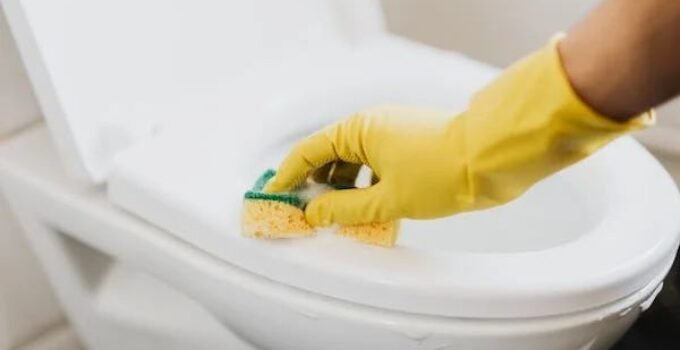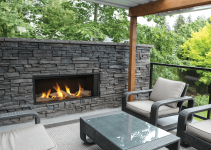Rust stains on your bathroom sinks and toilets can be quite unsightly. If you’ve tried to remove them with regular household cleaners, you will have discovered that they are difficult to remove as well.
What causes these stains? Should you be concerned? Does it warrant a call to the plumber Melbourne residents rely on to deal with all their plumbing issues? Keep reading to find out what causes these rust stains and what you can do about it.
What Causes Rust Stains in Your Bathroom?
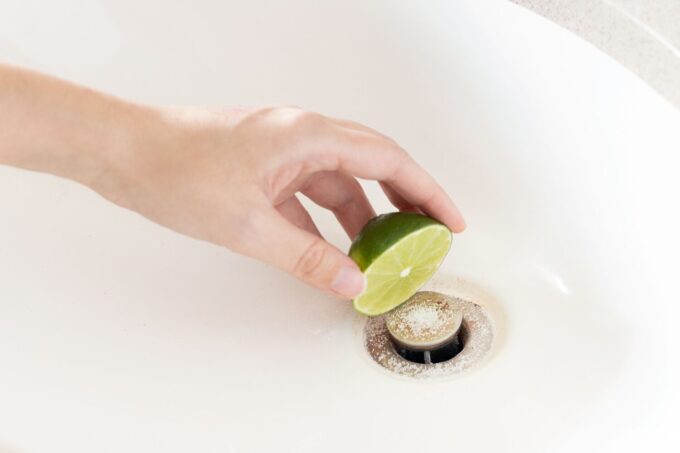
Source: thespruce.com
For the most part, rust stains in your toilet, sink and shower are caused by hard water. That means, the water has a high iron or mineral content in the water supply. You’ll more than likely see these stains around the water line in your toilet bowl or even streaks at the back of the toilet bowl where the water flows from the cistern into the bowl.
In instances where the cistern leaks, these streaks will be more prevalent. Other causes of rust in your bathroom can stem from metal objects left on the side of your sink or tub. For instance, metal items such as nail clippers, nail files, scissors or even a shaving cream tin can create brown stains on the porcelain.
Another common reason you may have brown rings or rust-like streaks or marks can also stem from a leaking tap. In this instance, the stain may appear where the tap drips into the bath or sink. Old, rusty pipes may also contribute to the formation of rust stains.
A Few Home Remedies to Consider
Seeing rust stains on your sink, shower or in your toilet may have you reaching for the strongest bleach chemical you can find! However, keep in mind that harsh chemicals are not only damaging to your plumbing pipes, but they can also aggravate any respiratory ailments in your home.
That said, are there natural, less harsh ways to tackle these stains? Fortunately, there are, and we’ve got a list of the most common ones to try!
1. Lemon And Salt
One of the oldest and most used home remedies for removing stains off porcelain is the lemon and salt mixture. Here’s what you should do:
- Cover the stain with regular household salt or sea salt.
- Pour enough lemon juice onto the salt to form a thick paste.
- Leave this paste on the stain, preferably overnight.
- Use a soft brush to scrub the stain away in the morning.
- If the stain is quite stubborn, you may have to repeat the process.
- For stains that are in awkward places, such as in the side of the toilet bowl, you can opt to cut a lemon in half and dip it in salt and use the lemon to scrub the stain away.
2. Baking Soda and Vinegar
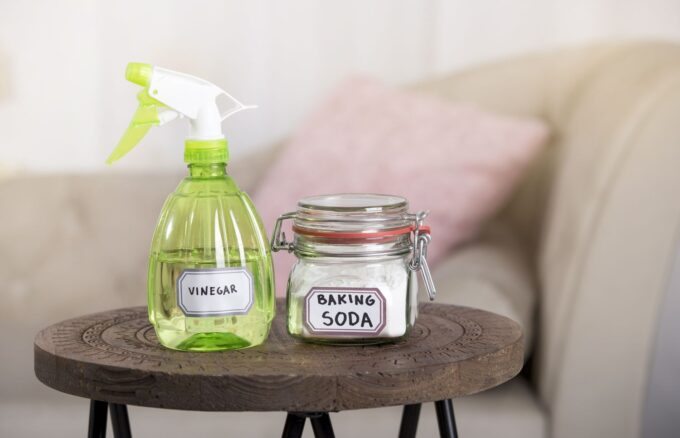
Source: treehugger.com
If you prefer opting for environmentally friendly options for your cleaning requirements, then you’re no stranger to the trusty old baking soda and vinegar mixture. Here’s how you can use it to lessen the likelihood of stains on your porcelain:
- Mix the baking soda and vinegar into a paste.
- Spread this mixture across the stain and lather on as much as is needed to cover the area.
- Where possible, leave overnight and scrub the stain in the morning.
- Reapply for severely stubborn stains.
3. Cream of Tartar
Cream of tartar isn’t just good for use as an ingredient in cookies and cakes. The acid that makes up this useful ingredient can also be used to remove rust. Here’s how:
- Sprinkle the cream of tartar on the rust-covered areas.
- Use a few drops of water to create a paste.
- If possible, wrap the area with plastic wrap to keep the cream of tartar paste moist while you leave it overnight.
This mixture is especially effective on shower walls and toilet bowls.
4. Pumice Stone
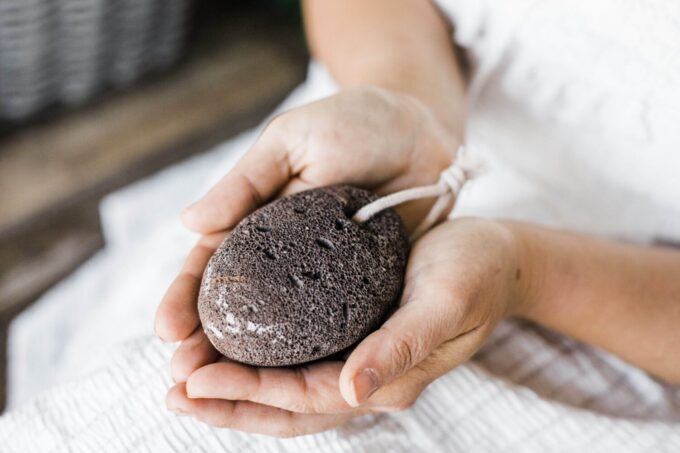
Source: beejoyfulshop.com
You might not know this about your favourite foot spa utensil, but pumice stone is actually a naturally occurring volcanic rock. This makes it great for removing rust from porcelain as it won’t damage or scratch the surface. Simply do the following:
- Wet the pumice stone and the rusty area.
- Gently rub the stain with the pumice stone
- Watch the rust disappear.
Other Simple Steps to Follow
In addition to using natural products to remove the rust, it’s a good idea to prevent the stains in the first place. Here’s how:
- Regularly wipe down surfaces after use to avoid water pooling.
- Keep metal objects (including metal cans) off of your porcelain surfaces.
- Fix any leaks as soon as possible.
- Check the inside of toilet tanks for corroded or damaged components.
- Install a water filtration system to remove nitrates, arsenic and other organic materials that can lead to hard water creation.
Final Thoughts
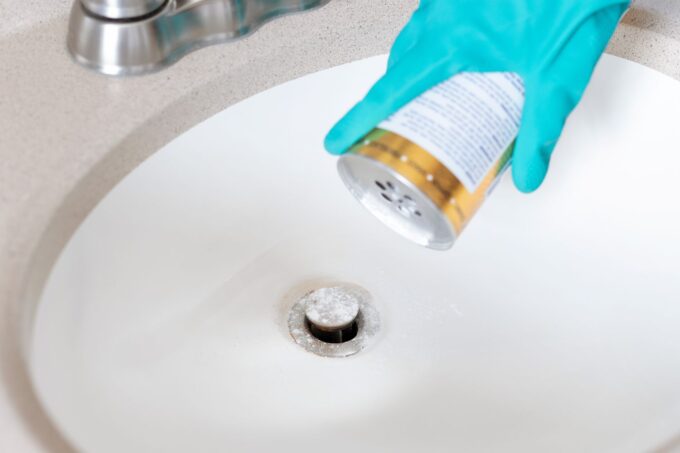
Getting rid of and even preventing those unsightly rust stains on your toilet bowl, sink or shower is easier than you think! Use the tips we’ve shared, and you’ll soon be wondering why you didn’t try them sooner!
Dealing with rust stains in your bathroom can be a hassle, but with the right remedies, you can tackle them effectively and prevent them from recurring. Natural solutions like lemon and salt, baking soda and vinegar, cream of tartar, and pumice stone offer eco-friendly alternatives to harsh chemicals. Additionally, taking simple preventative steps such as wiping down surfaces, keeping metal objects off porcelain, and promptly fixing leaks can help maintain a rust-free bathroom. By implementing these strategies, you can restore the pristine look of your bathroom fixtures and enjoy a cleaner, more inviting space. Don’t let rust stains dampen your bathroom’s appearance—take action with these natural remedies and enjoy a sparkling, stain-free environment in no time!

